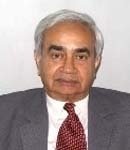Civil Nuclear Liability: Fact and Fiction
01 Nov, 2010 · 3270
PR Chari examines the implications of India's entry into the CSC in light of the impending US Presidential visit
With the countdown accelerating for the Obama visit to India next week the outstanding Indo-US bilateral issues have come into focus, which prominently includes India’s Civil Liability for Nuclear Damage Bill [now an Act]. It has caused immense concern to Washington and the American nuclear industry. Why? Hopefully, India’s recent, post-haste entry into the Convention on Supplementary Compensation for Nuclear Damage in Vienna will reassure them. Will it?
What are the concerns of Washington and the American nuclear industry? To briefly recollect: the Bush Administration had invested much political capital to legislate the Indo-US nuclear deal. The US law permits India to receive nuclear technology without signing the Nuclear Non Proliferation Treaty (NPT) or placing its nuclear facilities under comprehensive safeguards, despite exploding nuclear devices to become a quasi-nuclear weapons power. A Herculean effort was therefore needed to convince a skeptical US Congress that India’s sterling non-proliferation record entitled it to being made an exception to general prohibitions. Another Herculean diplomatic effort was required to push India’s case through the Nuclear Suppliers Group (NSG). Its Guidelines require that recipients of nuclear technology must be NPT signatories. The Bush administration pushed India’s case through the NSG in the teeth of opposition by countries like Japan and China. In return, the US government and the American nuclear industry feel entitled to get a fair share of the Indian nuclear business.
What are the concerns of Washington and the American nuclear industry? To briefly recollect: the Bush Administration had invested much political capital to legislate the Indo-US nuclear deal. The US law permits India to receive nuclear technology without signing the Nuclear Non Proliferation Treaty (NPT) or placing its nuclear facilities under comprehensive safeguards, despite exploding nuclear devices to become a quasi-nuclear weapons power. A Herculean effort was therefore needed to convince a skeptical US Congress that India’s sterling non-proliferation record entitled it to being made an exception to general prohibitions. Another Herculean diplomatic effort was required to push India’s case through the Nuclear Suppliers Group (NSG). Its Guidelines require that recipients of nuclear technology must be NPT signatories. The Bush administration pushed India’s case through the NSG in the teeth of opposition by countries like Japan and China. In return, the US government and the American nuclear industry feel entitled to get a fair share of the Indian nuclear business.
But, India’s civil nuclear liability law, intended to be the coping stone of the historic Indo-US nuclear deal, has caused deep concern? This needs an examination of its contents. The Civil Liability for Nuclear Damage Act (CNLD) fixes the liability for compensating victims of a possible nuclear accident on the operator of the concerned nuclear facility, which has been capped around $ 10 billion. For damages exceeding this amount, and up to 300 million SDR, the Central Government accepts responsibility. This provision is applicable to only the Central Government, since the Atomic Energy Commission in India is the primary and only nuclear operator, and remains averse to permitting the private sector to enter this area for ‘strategic’ reasons. The private sector is only permitted to supply nuclear equipment.
The problem lies in Section 17 (b) of the impugned Act. It envisages that the operator has a right to ‘recourse’ i.e. obtain compensation from the supplier if the accident occurs due to the fault of the supplier or his employees, which includes supply of defective equipment, material or sub-standard services. In marked contrast, the international law contained in the Convention on Supplementary Compensation for Nuclear Damage (CSC), lays this responsibility squarely on the operator and confers no right to ‘recourse.’ Undoubtedly, the Bhopal Gas Tragedy was uppermost in the minds of Parliamentarians. The carelessness of the operator (Union Carbide) was compounded by the malfunctioning of essential safety equipment, which led to this accident in 1984 resulting in a huge loss of lives. This experience guided Parliamentarians on the issue of civil nuclear liability during the debate.
What is the significance then of India entering the CSC in such unseemly haste? It was clearly intended to improve the atmospherics for the Obama visit, since the nuclear industry in the United States is greatly exercised with this right to ‘recourse’ in Indian law, which envisages suppliers becoming liable for huge damages should an accident occur. Insurance costs will therefore rise astronomically, making American industry less competitive. Will India’s entry into the CSC ease this problem? The short answer is ‘No’. First, the CSC requires at least five countries having 400,000 MWs of installed atomic power to sign up before it enters into force. This has not happened, although the Convention was finalized in 1997. Second, an elaborate three-stage procedure has been laid down before a country can join the Convention. It needs to sign the Convention, then ratify it, and thereafter the Convention has to come into force. India has only signed the Convention; ratification and the Convention’s entry into force are still far away. At this stage, India only needs to submit its Civil Nuclear Liability Act to the IAEA as proof of it intention to join the Convention whenever.
Will this unsatisfactory situation satisfy the American nuclear industry? An objective analysis reveals that many loose ends are hanging out. The Convention is not final; hence signing it can only be construed as an expression of intent, with no legal commitments accruing. The Indian law, however, is clear that the right to recourse is available to the operator to sue suppliers for defective supplies. And, the Indian government has made it clear that it will not amend its Civil Nuclear Liability legislation, which was passed by Parliament after a Herculean effort. Irresistible force meets an immoveable object.
Over to the Obama visit.


